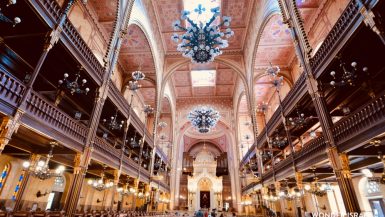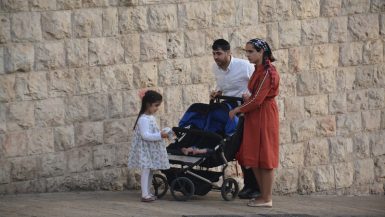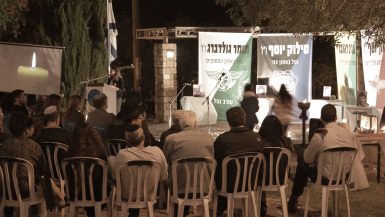Between Rosh Hashanah to Yom Kippur, perhaps you would see Jewish people in Jewish neighborhoods buying pure white chickens. And then perhaps you would see someone holding a chicken and swing it over his or their heads several times. What is this ritual or tradition?

Atonement Chicken: Kapparot
As there was no more temple and sacrifices, in Talmudic Era (around 4th-5th century) Jewish people in diaspora began a tradition of using chicken as a symbol of atonement called Kapparot. Everyone is required to spend money and buy a chicken. Reflect on one’s sins. Make confessions. And then say
This is my exchange. My substitute. My atonement.
Then with their own eyes, they would see how this innocent creature would ‘take our place’ and be killed.
The chicken would be slaughtered by kosher butcher. The meat must be ‘donated’ to orphanages, yeshivas, or synagogues. Then the meat will be distributed to the poor.
Some people choose to skip the ritual of killing the chicken, and donate money directly as atonement.
What I saw in Rome was, in 15th century the pope of Roman Catholic Church was afraid of the reformists would ‘pollute’ the orthodox faith, so the church locked the Jews into ghettos (yes, interesting logic). For 500 years Jews were in ghettos. One would have equal right only with conversion to Christianity. In such unfavorable living condition, many poor people needed the synagogues to take care of them. This is the donation box and kapparot tokens that I saw in Rome.
Small coin means small size chicken. Big coin means big size chicken. The poor would come with such token and exchange for meat.
Why Using Chicken for Atonement?
A logical explanation is that Jewish people in disaspora were not wealthy. Chicken is a common domestic animal, and everyone should be able to afford it at least once a year. It’s just a symbol. The purpose is not to forget our sins, and that only by blood would sins be ‘atoned’.
The other logic is that chickens were never used as sacrifice in the Holy Temple, so no one would mistakenly believe this was God’s original mitzvah.
Other details about kaparot include that if a family struggles with finances, then the ladies of one household can share a hen. And boys can share a rooster. And a pregnant woman will have to offer three chickens- 2 male and 1 female.
But Jewish people in diaspora share different tradition. This is an Iranian Jew. His family still used lamb in Tehran.
Why Swinging Chicken Overhead?
Atonement means to ‘cover’. The mercy seat is actually an atonment cover, covering the ark where the tablets were kept. The atonement cover was covered by the wings of two cherubim. So swinging chickens overhead is a symbol of being covered by this atoned price.
Why is Atonement Needed?
Atonement means someone else is paying the price of life for you, so you may live. It means you only get to LIVE, because the price is paid. For example you are supposed to be hit by a car, but you get to live because someone jumps in and pushes you away. And that someone takes your place of death.
This is God’s logic. We have sinned. Because of our sins, we should die. This is why
and apart from the shedding of blood there is no forgiveness (Hebrews 9:22)
Yet long ago God set up this atonement rule for us, so that we get to live.

On the Day of Atonement, the high priest would come to the Most Holy Place in the Holy Temple to atone sins for himself, his household and the people.
Then he is to put the incense on the fire before Adonai, so that the cloud of the incense may cover the atonement cover that is on the Ark, so that he would not die. He is then to take some of the blood of the bull and sprinkle it with his finger on the atonement cover, on the east side. Before the atonement cover he is to sprinkle some of the blood with his finger seven times. (Lev 16:13-14)

This ritual of atonement is called Kapparot. It’s the same Hebrew word as atonment. The Jewish people know that sins need to be atoned.
But many of them didn’t know that in the first coming of Messiah, He already fulfilled the prefiguration of the Day of Atonement (Yom Kippur). The messiah paid the price for us, so they we may live.
He entered into the Holies once for all—not by the blood of goats and calves but by His own blood, having obtained eternal redemption. (Hebrews 9:12)
References
https://www.chabad.org/library/article_cdo/aid/989585/jewish/Kaparot.htm
Cover page picture source:Hadas Parush/Flash 90









